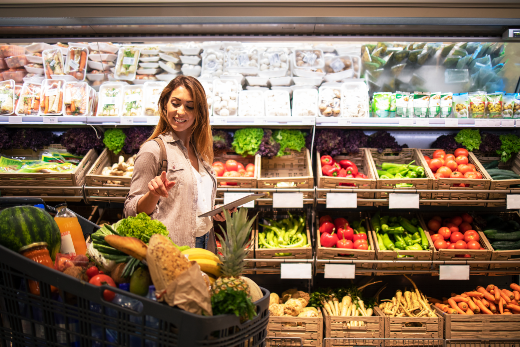From Montparnasse to Meols Cop, Europe’s supermarkets are under pressure—and not from inflation alone. A convergence of cultural nostalgia, grassroots resistance, and national deregulation has sparked a retail identity crisis.
Shoppers aren’t just looking for cheaper eggs or faster checkouts. They’re demanding stores that reflect community, character, and context. And increasingly, they’re willing to protest, petition, and post viral clips to get it.
Paris and Montparnasse: Carrefour and Cultural Resistance
In July, dozens of Parisian residents gathered outside a newly proposed Carrefour City location in Montparnasse. The protest was quiet but symbolic: “We’re not economic units,” read one hand-painted sign. “We’re neighbors.”
This reaction wasn’t merely aesthetic—it was cultural. “Parisians don’t mind modernization,” said Sophie Maréchal, a protest organizer. “But these stores erase the rhythm of the street.”
Carrefour maintains that the micro-format is sustainable and designed for dense urban living. But the backlash reveals a deeper discomfort: the sense that European grocery chains are becoming frictionless at the cost of flavor—both literal and social.
Belgium Supermarket Sunday Law 2025: Quiet Policy, Loud Impact in Europe’s Supermarkets
While Parisians were protesting, Belgian lawmakers were deregulating. In a move that stunned even local grocers, Belgium repealed restrictions on Sunday trading hours, allowing supermarkets to operate until 9 p.m., seven days a week.
Consumer advocates praised the shift. “Shoppers work differently today,” said Aisling Murphy of the Retail Futures Group. “This aligns policy with reality.”
Yet smaller retailers fear further consolidation. Some neighborhood shops in Antwerp and Liège have reported drops in foot traffic. It’s a classic dilemma: access versus equity.
The legal change, reported by EU Business, is one of the most sweeping deregulations in Belgium’s retail history.
Seinfeld Supermarket Nostalgia Europe: Why It Resonates
Earlier this month, a Seinfeld clip circulated widely on European social media. The scene? Jerry losing patience with a long checkout line and a fumbling bagger. The punchline wasn’t just funny—it felt real.
“Seinfeld’s supermarket chaos captured something we miss,” said retail historian Amira Colson of UCL. “Interaction, imperfection, human scale.”
Google searches for “Seinfeld supermarket nostalgia Europe” spiked 700% in the UK. The implication: even in an age of scan-and-go efficiency, shoppers crave connection—especially in the wake of pandemic isolation.
IGD research also notes a sharp rise in shopper demand for human interaction in grocery retail, especially post-COVID. Google searches for “Seinfeld supermarket nostalgia Europe” spiked 700% in the UK.
Kelso Shop-in-Shop Supermarket Model: A Rural Answer
In the Scottish Borders town of Kelso, a hybrid grocery pilot has captured industry attention. Local vendors—cheesemongers, florists, butchers—are hosted inside a standard-format supermarket, operating under a “shop-in-shop” arrangement.
The model is early-stage, but promising. “We’ve doubled Sunday footfall,” said a store manager involved in the pilot. “And shoppers spend more when they talk to real people.”
This approach isn’t just quaint—it could be a scalable response to both supply chain fragility and retail blandness.
RetailDetail.eu called it “a compelling hybrid model for community-scale retail.”
Southport Supermarket Greenway: Meols Cop’s Local Experiment
Last year, Sainsbury’s opened a new flagship in Southport’s Meols Cop retail park. Rather than replicate a generic big-box template, planners incorporated a greenway—a landscaped walking route with benches, noticeboards, and garden spaces.
It’s an urbanist twist on a commercial zone—and it’s working. “It feels less like a parking lot and more like a village square,” said one shopper.
The Southport supermarket greenway Meols Cop initiative may signal how retailers can blend expansion with placemaking—an idea catching on in market towns across Europe.
The Outlook: From Passive Shopping to Participatory Retail
Whether through viral clips or zoning meetings, Europe’s supermarket future is being reshaped by emotion as much as economics.
From Belgium’s quiet deregulation to Kelso’s hyper-local pilot, and from Meols Cop’s greening to Paris’s resistance, a new model is emerging—one that balances scale with soul.
A 2025 report from McKinsey underscores this transition, noting that “retailers must now compete not just on convenience, but on community presence and trust.



